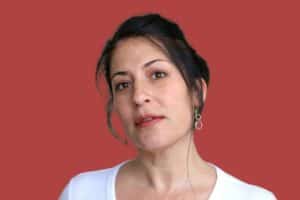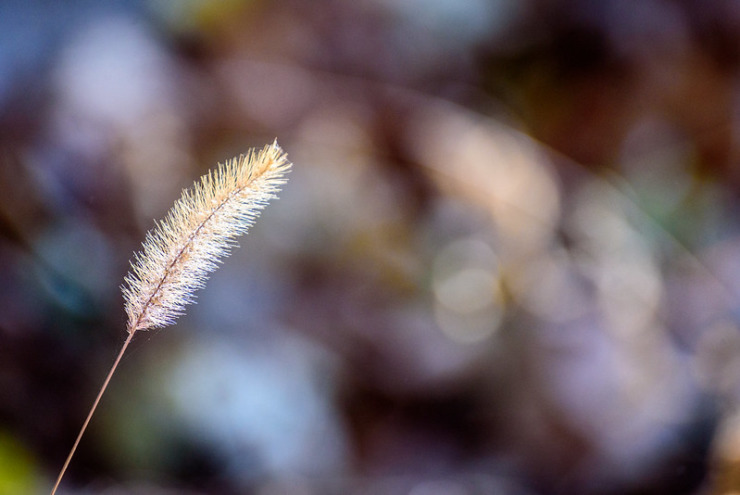Ada Limón named the 24th Poet Laureate of the United States
“One of the things I’ve learned this far into a life in language is to be grateful about all of this,” said poet Ada Limón in a 2018 interview with Poets & Writers. “I get to read and spend time with words as a vocation. Yes, it’s work, and there is so much failure and so much getting it wrong. But still, we are so lucky.”
Limón’s life in language has taken another turn. Last month, Librarian of Congress Carla Hayden named her the 24th Poet Laureate of the United States. In her appointment, Hayden cited the poet’s ability to connect and how her poems “ground us in where we are and who we share our world with. They speak of intimate truths, of the beauty and heartbreak that is living, in ways that help us move forward.”
In our review last year of her fifth collection, The Carrying, we cited something related — how Limón turns the commonplace into the personal. “She sees the obvious things that we all see,” we wrote, “but looks beyond or inside them to see far more, grasp more, and understand more.” This poem from the collection is a good example.
The Raincoat

Ada Limón
When the doctor suggested surgery
and a brace for all my youngest years,
my parents scrambled to take me
to massage therapy, deep tissue work,
osteopathy, and soon my crooked spine
unspooled a bit, I could breathe again,
and move more in a body unclouded
by pain. My mom would tell me to sing
songs to her the whole forty-five minute
drive to Middle Two Rock Road and forty-
five minutes back from physical therapy.
She’d say, even my voice sounded unfettered
by my spine afterward. So I sang and sang,
because I thought she liked it. I never
asked her what she gave up to drive me,
or how her day was before this chore. Today,
at her age, I was driving myself home from yet
another spine appointment, singing along
to some maudlin but solid song on the radio,
and I saw a mom take her raincoat off
and give it to her young daughter when
a storm took over the afternoon. My god,
I thought, my whole life I’ve been under her
raincoat thinking it was somehow a marvel
that I never got wet.
Born in 1976, Limón was reared in Sonoma, California, and cites the influence of the visual arts and her artist mother on her work. She received an M.F.A. degree from the creative writing program at New York University. She’s received fellowships from the Guggenheim Foundation, the New York Foundation for the Arts, the Provincetown Fine Arts Work Center, and the Kentucky Foundation for Women. She is a member of the faculty for Queens University of Charlotte Low Residency MFA program and lives in Lexington, Kentucky.
Her poetry collections include The Big Fake World (2005), Lucky Wreck (2006), Sharks in the Rivers (2010), Bright Dead Things (2015), The Carrying (2018), and The Hurting Kind (2022). Her poems have been published in a wide array of literary journals and magazines, including The New Yorker, Harvard Review, Pleaides, Barrow Street, and many others. Bright Dead Things was a finalist for the National Book Award, the National Book Critics Circle Award for Poetry, and the Kingsley Tufts Poetry Award. The Carrying won the National Book Critics Circle Award for Poetry. She also hosts a daily poetry podcast, The Slowdown.
Limón will begin her duties on Sept. 29 with a reading of her work to open the Library of Congress’s annual literary season.
The position now known as Poet Laureate of the United States was created in 1937 as the Consultant in Poetry to the Library of Congress. Endowed by Archer Huntington, the position continued under that name until 1985, when it was renamed Poet Laureate. The purpose of the position is to “raise national consciousness to a greater appreciation of the reading and writing of poetry.” Poets honored with the generally two-year appointment have included Robert Penn Warren, Elizabeth Bishop, Robert Frost, William Carlos Williams, James Dickey, Gwendolyn Brooks, Joseph Brodsky, Billy Collins, Rita Dove, Louise Glück, Ted Kooser, Natasha Trethewey, Tracy Smith, and Joy Harjo, among other notable writers.
Related:
Ada Limón on becoming the new poet laureate (PBS video)
Ada Limón on How We’ll Never Truly Understand the Mystery of Being Alive — an interview with Maris Kreizman at Literary Hub
Photo by NathalieSt, Creative Commons, via Flickr. Post by Glynn Young.
How to Read a Poem uses images like the mouse, the hive, the switch (from the Billy Collins poem)—to guide readers into new ways of understanding poems. Anthology included.
“I require all our incoming poetry students—in the MFA I direct—to buy and read this book.”
—Jeanetta Calhoun Mish
- Poets and Poems: Luci Shaw and “An Incremental Life” - April 3, 2025
- Ben Palpant Talks with 17 Poets About, Well, Poetry - April 1, 2025
- Poets and Poems: Forrest Gander and “Mojave Ghost” - March 27, 2025


Leave a Reply